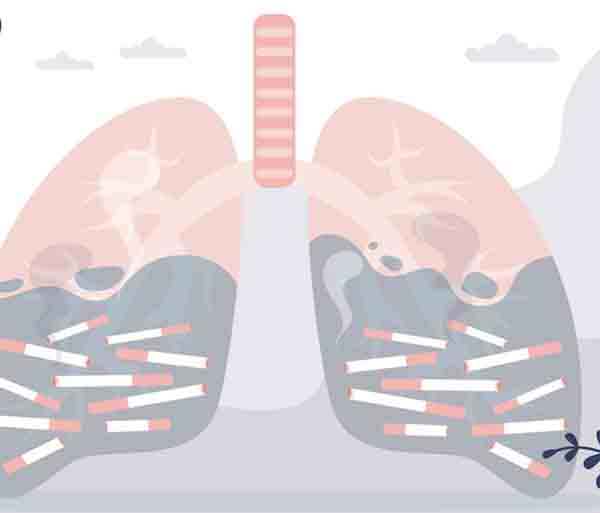Smoking is not good for your health. Your lungs will be at serious risk of developing respiratory related conditions if you quit smoking without ensuring that they are receiving proper care. The best way increasing lung capacity after quitting smoking is by maintaining healthy habits, such as exercising and breathing deeply. This article will explain how to increase your lung capacity after quitting smoking so that you can enjoy all the benefits of quitting this deadly addiction.
How does Smoking Affect the Lungs?

The combustion of cigarettes or tobacco products can harm your lungs by causing inflammation, impairing the cilia which are there to protect the airways, by suppressing the immune system, and by reducing oxygen levels in your blood. Quitting smoking will lead to an increase in lung capacity.
How to Prepare for Quitting Smoking?
Before quitting smoking, prepare for what might happen so you can take care of it ahead of time, if possible. Here are some steps to quitting smoking:
Step 1: Get Ready to Quit Smoking
Decide why you want to quit and write it down. Write your reasons on a card and keep it in your wallet or purse so that when you are tempted, you can remember why you’re giving up smoking. This could be for health reasons, money, family, or social influence. You can also download a free quitting smoking techniques guide with many helpful tips to get you started.
Step 2: Make a Date
Pick the day you will quit smoking. Put a suitable date in your calendar and try to make it at least one week after you smoke your last cigarette. This will allow time for the chemicals in cigarettes to leave your body and reduce withdrawal symptoms that could make it hard for you to quit.
Step 3: Build a Support System
Make sure you have people around you who support your decision and want to help keep you on track. You can talk with them about your smoking habits and how you would like to quit. Ask if they will help you keep from giving in when those symptoms happen.
Step 4: Prepare for Withdrawal Symptoms
If you’re a smoker, chances are good that you don’t even remember what it feels like to be a healthy non-smoker. While you probably know the physical health benefits of quitting smoking, you may not realize that stopping means your body is going through withdrawal from nicotine.
Ways to Increase Lung Capacity after Quit Smoking
Lung capacity is the amount of air that an individual can breathe in and exhale at a specific time. Quitting smoking will decrease your lung capacity. There are many treatments to help increase lung capacity. Some treatments include:
Aerobic Exercise: Aerobic exercise such as biking, jogging, and swimming can improve your lung capacity by getting your lungs working harder. If you stop regularly, you risk the chance of getting weaker lungs. You should also do light aerobic exercise regularly as it can also help with other weight-related issues and blood sugar control.
Rapid Pulse Breathing: Rapid pulse breathing is a technique that requires inhaling deeply through your nose and then exhaling forcefully through your mouth for seven seconds to allow your lungs to take in more air. Repeat this process four or five times in order to increase your lung capacity.
Deep Breathing: Take a deep breath in through the mouth, hold it for five seconds, and then slowly exhale through the mouth for at least 10 seconds. Repeat these techniques few times throughout the day when you are feeling stressed or have a bad craving.
Conclusion
Smoking is a common trigger for asthma and other Atemtherapiegerät related conditions, which means that you will be at risk for developing serious breathing problems. If you want to avoid these risks in the coming months or years of your life then it’s important to invest time into improving lung capacity through exercise after giving up smoking completely. These simple exercises can help prepare your body for what’s ahead while also providing some relief during this difficult transition period.



